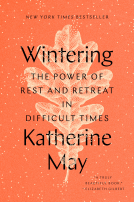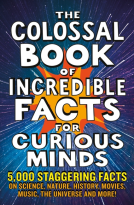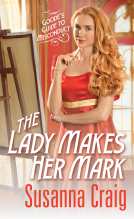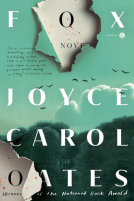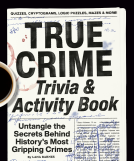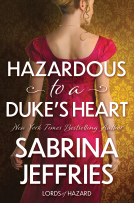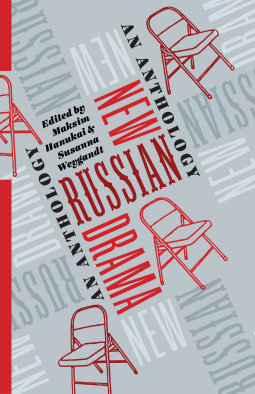
New Russian Drama
An Anthology
by Edited by Maksim Hanukai and Susanna Weygandt
This title was previously available on NetGalley and is now archived.
Send NetGalley books directly to your Kindle or Kindle app
1
To read on a Kindle or Kindle app, please add kindle@netgalley.com as an approved email address to receive files in your Amazon account. Click here for step-by-step instructions.
2
Also find your Kindle email address within your Amazon account, and enter it here.
Pub Date Aug 06 2019 | Archive Date Oct 29 2019
Talking about this book? Use #RussianLibrary #NetGalley. More hashtag tips!
Description
This anthology offers an introduction to New Russian Drama through plays that illustrate the versatility and global relevance of this exciting movement. Many of them address pressing social issues, such as ethnic tensions and political disillusionment; others engage with Russia’s rich cultural legacy by reimagining traditional genres and canons. Among them are a family drama about Anton Chekhov, a modern production play in which factory workers compose haiku, and a satirical verse play about the treatment of migrant workers, as well a documentary play about a terrorist school siege and a postdramatic “text” that is only two sentences long. Both politically and aesthetically uncompromising, they chart new paths for performance in the twenty-first century. Acquainting English-language readers with these vital works, New Russian Drama challenges us to reflect on the status and mission of the theater.
Advance Praise
“As the second decade of the twenty-first century draws to a close, this timely and skillfully edited anthology of plays written in Russian introduces us to the inventive genius and sheer courage of young dramatists, who continue to defy the aesthetic, social, and political conservatism of Putin’s Russia.”
—Julie Curtis, University of Oxford
“This new anthology of contemporary Russian plays will be invaluable to scholars and theater makers alike. The early years of this young century sparked an unprecedented flourishing of new writing for the theater in Russia. During a window of relative freedom from censorship, these writers dug underneath the surface of Russian society to explore previously taboo subjects like drugs, sex, violence, the fallout from war, and the reality of life in a new economy. With abundant theatricality and often mordant wit, these plays represent some of the best and most enduring works from a vital generation of new Russian playwrights.”
—Christian Parker, Columbia University
“There has never been a more important moment to stay connected to the Russian theater and culture. This rich, comprehensive, and timely anthology offers a vital and inspiring lifeline for scholars, students, theater makers, and the general public alike.”
—Duška Radosavljević, Royal Central School of Speech and Drama, University of London
Available Editions
| EDITION | Other Format |
| ISBN | 9780231185110 |
| PRICE | $35.00 (USD) |
Featured Reviews
 Vicky p, Reviewer
Vicky p, Reviewer
I wish I could like this book more! Richard Schechner writes in his Foreword that when he was growing up in the theatre, it was all Russia, and it was like that for me, too. Although I didn't grow up <i>in</i> the threatre, I very much grew up <i>with</i> the theatre, and it was all Russia! My aesthetic sensibility was totally shaped by the Chekvovs and the Gogols and the Turgenevs I saw as a little (and then teenage) girl, totally immersing myself into the depressive, stifling world those characters inhabited. Unfortunately, I can't say I found quite the same qualities in the present volume, though perhaps that would be asking too much from a society that has gone through severe shock and trauma.
As Schechner explains, those in the West conversant with Sarah Kane or Annie Sprinkle will not find anything new in this volume; what they will find, however, is a depiction of contemporary Russia in all its 'postapocalyptic' violence. Hopeless and nihilistic, the characters in these plays are largely unlikeable, unapproachable, difficult to relate to. Alienation and mindless violence mark their life experiences; there seems to be no explanation for this violence, just a stupid, irrational wish to get another human being down. The language reflects this mindlessness: short, snappy sentences puncutate a discourse full of brutality and misogyny where women are sluts or bitches and ordinary human emotions are absent. I have to admit I was quite unable to finish the book -- although I fully appreciate that the theatre is not just about the writing, it's also the staging, the actors, the atmosphere, the lighting... What reads like a mediocre play could be transformed by a competent group into something much more potent. In addition, these plays give a very compelling image of Russian society. I'll end with Schechner's words again:<i> "Taken as a unit, these playwrights have for the most part surrendered to Putin's grotesque, post-Soviet dry rot. They don't advocate, or hope. These plays are short on Brechtian irony, Ibsenian outrage, or Milleresque sentimentality. I think I get it: for these writers, life in Moscow, or life in Chechnya, or Belarus -- all over urban Russia, and its sphere of influence and hostility, both metropolis and hinterland-- is, to quote Thomas Hobbes, 'No arts; no letters; no society; and which is worst of all, continual fear, and danger of violent death: and the life of man, solitary, poor, nasty, brutish, and short' (The Leviathan, ch. 12)". </i>
 John L, Reviewer
John L, Reviewer
I come to this, as I have consistently tried with this certain highly academic (and very good) publisher, as a regular browser, the man-on-the-bus non-specialist, who – you never know – may perchance stumble on one of their books and try and broaden their horizons. Plus, my degree (partly in English and drama) does mean I'm au fait with reading play scripts, which more people should do. What could they possibly be like, under Putin's watch?
Well, bleakness is in order for the first play, which starts with a child dying and goes on from there, as two wannabe sexed-up teenagers see the darkness of their lot, and meet it with their own belligerence head-on. Questions abound about how to stage the flipping thing, with two bird species, a cat (non-smiling), a bus, molten lead and more all mentioned in the stage directions.
The second play certainly tries to be funnier, but fails. The academic side of the book would have its particular brand of ennui pointed out, as it's about a young chap who helps police film reconstructions and record suspects' testimony in situ, only for a death to happen during one such event, which causes another. The farcical elements of filming a filming could have made a reasonable TV skit, but it doesn't work, even when two creatives come along and brainstorm the writing of all we've just been subject to. Tres postmodern. Tres unfunny – the whole smacks of a sketch dragged out far too long.
Then it goes further downhill. Verbatim theatre isn't my thing, and something about Chechnyan terrorism even less so. The fourth piece is too Chekhovian in style and subject, the fifth almost Brechtian in how we don't get a glimpse of character when seeing some machine plant workers. Better is a tale of some boring-sounding youths and their fake, pretense relationship, although the huge interlude concerning other, more boring people in an office is a waste of time. We wait a long time for something much better, with a look at a journalist whose wife has died. Wayward sons, failing relationships with betrayals of trust and fidelity… we're still on dark ground, but this is so much more narratively satisfying than a lot that went before. AND we have characters. Elsewhere at the end, one play takes far too long to discuss the flaws in democracy that might be a woman's domestic lot, and we close with a piece that really doesn't travel without its specific ethnic concerns.
So if the average bus reader were to pick this up, it would like as not end up through the window in a matter of stops. Seriously for the theatre academic alone, I'm sure they find glories ahoy. The average browser, like me, will probably find this hard work, with only one or two memorable exceptions.
Postmodern, Sarah Kane-esque, nihilistic and bleak; the plays in this anthology sway between mediocrity and excellence.
 Amanda E, Reviewer
Amanda E, Reviewer
I really struggled with this one. I found it interesting as I have never read plays by Russian authors before. It was a very different style of writing and sometimes it felt like the structure of the story didn’t translate well into English. A lot of them came across as juvenile because of unnecessary vulgar language. I have nothing against vulgar language it just felt over used in some plays, and unnecessary. I did enjoy several of the plays and overall felt it was a decent collection.
Readers who liked this book also liked:
Nigel Henbest; Simon Brew; Sarah Tomley; Ken Okona-Mensah; Tom Parfitt; Trevor Davies; Chas Newkey-Burden
Entertainment & Pop Culture, Humor & Satire, Nonfiction (Adult)
